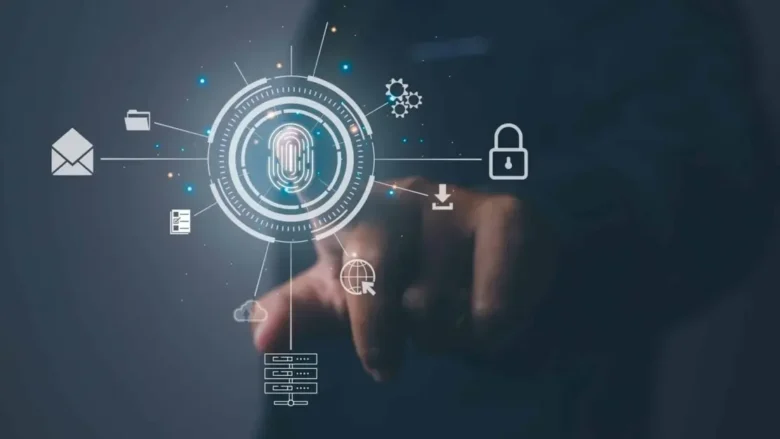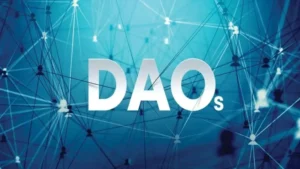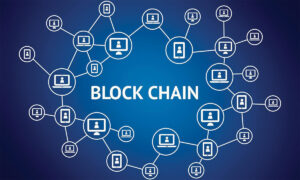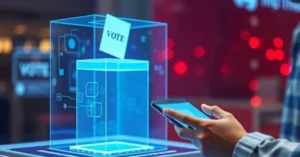In this connected world, our digital identities are more open than ever. From logging in to social networks to shopping online, we constantly share personal information with third parties. Could you please clarify the purpose of this information? Who controls it? How secure is it? Based on these key issues, a new digital trend has emerged called “decentralized identity.” As people become increasingly concerned about data breaches, surveillance, and misuse of personal information, decentralized identity systems are becoming a disruptive way to own, manage, and protect their digital identity. This new concept is rapidly changing the way we communicate online. It’s not a one-day wonder but a major change in privacy protection.
What Is Decentralized Identity and How Does It Work?
Decentralized identity is an autonomous identity model that allows people to manage their online identity without relying on social networks, governments, or corporations. Decentralized identity solutions utilize blockchain technology and cryptographic security technology to give users complete control. This approach differs from traditional systems, which store user information in controlled databases that can be hacked. In reality, people create their unique ID and store it in a digital wallet, much like how cryptocurrencies work. An independent network verifies this identification information, making it secure, private, and immutable. You control when and with whom you share your information, significantly reducing your digital footprint and exposure.
Why Centralized Identity Systems Don’t Work:
The identity management tools we use today are centralized and unreliable. Banks and social networks operate similarly: you give them your information, and they store it on their computers. This approach creates the risk of identity theft, data breaches, and spying without your consent. Reports of major data breaches from companies like Equifax and Facebook demonstrate the vulnerability of centralized approaches. Besides security vulnerabilities, these systems require multiple login attempts, repeated verifications, and the filling out of numerous forms, making them difficult to operate. Decentralized identity changes these dynamics by eliminating intermediaries and providing users with a single, secure name that is always consistent across all digital platforms.
Why Decentralized Identity Benefits Security and Privacy:
Improved confidentiality is the primary benefit of decentralized identity. Without a central computer, hackers can’t exploit a single point of failure. Selective sharing allows users to share only the data they need, keeping private information secure. It also allows third parties to see your age or nationality without knowing your full name, a process called “data minimization.” Decentralized identity solutions also prevent unauthorized tracking, allowing users to browse, buy products, and communicate without having to provide their real names. Ultimately, we will provide a more secure, reliable, and privacy-respecting online experience.
Practical Applications of Decentralized Identity:
Decentralized identity is more than just an idea; it’s currently being used in many industries. In finance, it accelerates the “know your customer” (KYC) process and ensures the security of user data. In healthcare, patients can carry their medical information in a secure digital wallet accessible only to specific medical providers. Governments are also looking into alternative digital identification systems to protect service users. Even education is using technology to create immutable credentials, such as diplomas and badges. As Web3 grows, decentralized identity will be necessary to log in to decentralized applications (dApps), join DAOs, and prove identity in the metaverse.
Blockchain and the Verifiable Part of Credentials:
Blockchain technology, which stores identifying information in an immutable public ledger, is at the heart of decentralized identity. But blockchain alone isn’t enough. Verifiable credentials are digitally signed promises that you can take anywhere, are secure, and can be verified instantly. For example, a university can issue a certificate that you can verify to prove you have a degree. You can store it in a digital wallet and show it whenever needed, but others can’t see the full text. These credentials create trust without extra steps, making digital exchanges faster, more secure, and more transparent. Interoperability means that identities can be used across different systems and countries.
Issues That Have Slowed Decentralized Identity Adoption:
Despite its enormous potential, decentralized identity still faces many challenges. First, there’s regulatory uncertainty. For decentralized identity to be legally recognized, governments must create a legal framework. Second, there’s user adoption. Many people are unfamiliar with blockchain, and managing digital wallets can be challenging. There are also technical challenges to address, such as ensuring systems can communicate with each other and creating user-friendly interfaces. Furthermore, companies may resist change due to their familiarity with traditional methods. But as privacy concerns rise and data regulations tighten, demand for decentralized identity could increase, driving companies to change and adapt.
Why No One Can Verify Your Identity:
We urgently need to create a layer of trust in the digital world. We need a way to prove our identity without exposing all our assets. Decentralized identity adds a layer of trust by enabling people to communicate securely and privately with informed consent. It consolidates user power and frees them from dependence on large tech companies and government data. As more and more services move online, we need an identity system that is secure, private, and people-centric. Decentralized identity isn’t just a new feature; it’s a major shift in how we think about our digital freedoms. It’s essential to believe in the future of the digital world.
Conclusion:
Today, we live in a digital world that makes things easier but takes away privacy and control. For too long, we’ve compromised private data to access information without understanding the long-term consequences. Decentralized identity is a bold and innovative way to solve this problem. It gives people back their freedom, protects privacy, and builds trust in this increasingly networked world. At the intersection of privacy and new technologies, embracing self-governing identity is perhaps the most important thing we can do to make our digital lives more secure and free. We need to break with the old ways and take control of what we do online.
FAQs:
1. What is decentralized identity?
Decentralized identity based on blockchain allows people to own and manage their data without relying on large corporations or governments to keep track of it.
2. How does decentralized identity better protect privacy?
It eliminates the need for a centralized database, which reduces the risk of hacking and allows people to share only the information they need, with full control and authorization.
3. What is decentralized identity? Can I use it now?
Yes, platforms like Microsoft Entra, Sovrin, and uPort already offer decentralized identity solutions and have been tested in sectors such as healthcare, education, and banking.
4. Is decentralized identity safe from hackers?
It’s more secure because there are no key security points that can go wrong. Not all information is stored on a central server that can be hacked; instead, all information is encrypted and managed by the user.
5. Will self-sovereign identity systems replace existing identification systems?
Over time, they could be compatible with or even replace existing systems, especially in sectors that require a high degree of privacy, such as online banking, healthcare, and government services.




